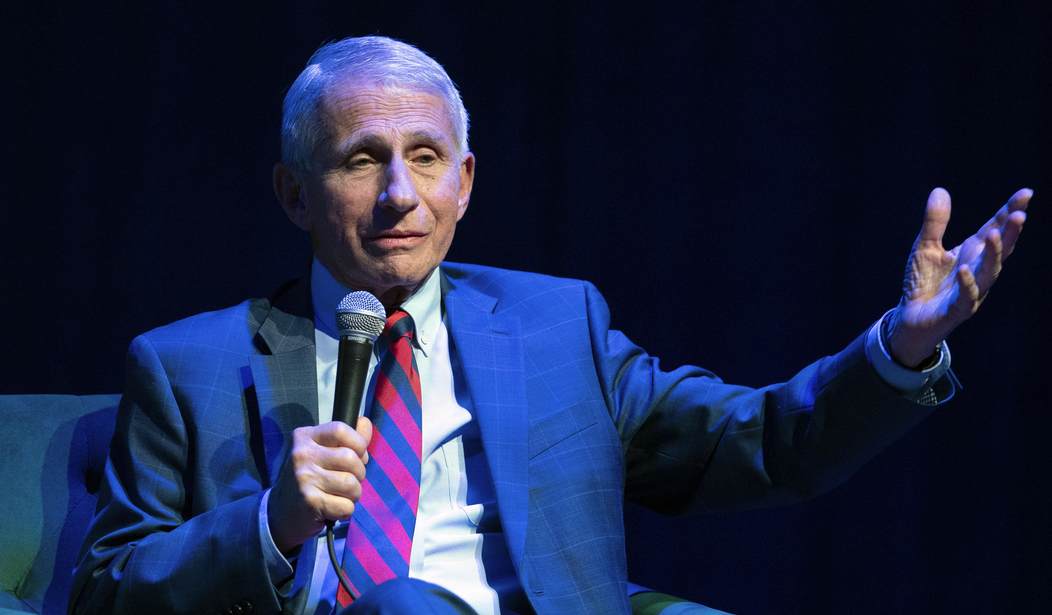Donald Trump was not elected to get to the bottom of COVID-19's origins, not specifically anyway. Trump was elected to bring light into the dark places of the government, and one of the darkest is where information that would lead investigators in Congress and the agencies to the origins of the pandemic is lying.
It's relevant for many reasons. Finding the origins of COVID-19 would give researchers a far better understanding of the disease. If it's discovered to have been altered by gain of function research, the perpetrators must be brought to justice. (Note: Other scientists were doing gain-of-function research at the Wuhan lab besides Fauci-funded researchers, including some Chinese military officers.)
Finding the origins of COVID-19 would be particularly beneficial if it turns out that rather than a lab leak, the coronavirus spread via a sick animal in the Wuhan wet market. This theory has not been rejected by any means by the scientific community. But the lab leak theory is gaining traction.
Being able to find the animal that transmitted the virus to humans could lead to far better vaccines and drugs to treat COVID-19.
The biggest obstacle to getting to the truth about COVID-19's origins is the Communist Chinese government. It has built a red wall around the first critical COVID-19 cases and refuses to share that information with the world.
The U.S. Congress, on the other hand, has made excellent progress in its quest to find the origin of COVID-19. Incredibly, Congressional committees are beginning to unlock the shocking connection between the COVID-19 virus and gain of function research at the Wuhan lab paid for by the U.S. government.
The case isn't solid yet. But even the suggestion that Antony Fauci's National Institute of Allergy and Infectious Diseases paid American Peter Daszak of the EcoHealth Alliance to make bat coronaviruses more infectious leads to troubling questions about hero Fauci and the National Institutes of Health.
There's still a lot we don't know. Now, the people who are in place (or who will soon be confirmed) who can dig deeply into the mystery appear to be the right choices for the job.
What kind of information is still out there?
"There would be grant proposals which have not yet been released, progress reports which have not yet been released, correspondence with the funding agencies on reporting and compliance that has not been released," says Richard H. Ebright, a molecular biologist at Rutgers University. Ebright is an enthusiastic supporter of the lab leak theory, one of the first.
For starters, the president announced the nomination of Stanford professor and medical researcher Jay Bhattacharya to head the NIH. Bhattacharya has expressed openness to the lab leak hypothesis in the pages of Reason while also criticizing officials' lack of transparency on this topic.
Bhattacharya also served on the board of directors of the group Biosafety Now, which is opposed to gain-of-function research on pandemic pathogens and has also supported the lab leak hypothesis.
A law Congress passed unanimously in 2023 required the director of national intelligence to declassify material related to COVID-19's origins. That law produced only a 10-page partially redacted summary of the intelligence community's findings that included little new information. But Trump has nominated former Rep. Tulsi Gabbard (D–Hawaii) as the next director of national intelligence, and she has said she leans toward the lab leak hypothesis. If confirmed, Gabbard would be in a position to release more classified documentation on COVID-19's origins.
On the legislative side, Kentucky's bulldog Sen. Rand Paul will once again harass, browbeat, and belittle Fauci in what promises to be some of the best legislative theater this century.
Paul is introducing a bill, the "Risky Research Review Act." It would create a board with members named by the president and confirmed by the Senate. The new board would be required "to perform a risk-benefit analysis of so-called high-risk life science research that could increase the virulence of pathogens."
Critically, the board would be empowered to demand classified documentation on research for present and past projects.
The bill has a fair chance of passage in the GOP Congress. If it does, Fauci better get himself a good criminal lawyer.










